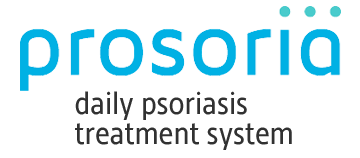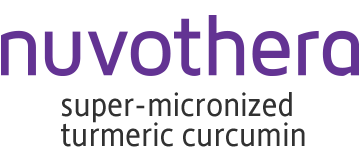Eat Your Way To Better Health: How Dietary Changes Can Significantly Improve Psoriasis Symptoms
31 Jul 18

We all know that one of the best ways to improve our overall health is to eat healthy foods. But, what does that mean exactly? When “eating better” can mean anything from eating more fats, to cutting fats, no carbs, Mediterranean, Paleo, Keto, vegan … Who in the world can keep up with what’s right and wrong when there are so many contradicting opinions? Research has shown that for those with psoriasis, staying away from foods that can increase inflammation is a great first step, and adding in foods that reduce inflammation comes in a close second. Dietary changes can’t cure psoriasis, but they can help relieve symptoms and aid in the prevention of comorbidities. Keep in mind, however: it’s best to talk to your doctor before making any significant dietary changes, especially if you’re experiencing a flare or have recently started or stopped any medications.
Which Foods To Avoid and Why
-
Alcohol -- Although alcohol in moderation is not inherently bad for those with psoriasis, it can cause additional inflammation in some people, and exacerbate already existing comorbidities. Additionally, alcohol use can bring about other skin problems, such as pruritus (itchy skin) that can make living with psoriasis even more uncomfortable.
-
Nightshade vegetables -- Though there is no reason to throw your tomatoes and bell peppers away just yet, some people have experienced pain and inflammation after eating nightshade vegetables. Some even reported a worsening flare-up of psoriasis symptoms, so it’s worth a discussion with your doctor if medications aren’t clearing your current flare.
-
Refined sugar -- No one needs refined sugar. Of all the things that can be cut out of a diet, sugar should be top of the list. Not only does it increase inflammation, it has no biological advantages. It’s empty calories with absolutely no benefit to the system.
- Fried foods -- Fried food is not healthy for those with psoriasis because it can trigger other skin conditions. It worsens inflammation, and for many it can be as addictive as alcohol or tobacco.
Though avoiding foods that are known to cause inflammation is a wonderful first step, other foods have also been scientifically proven to reduce inflammation, and sometimes even lessen the duration of flares.
Foods Scientifically Proven to Help with Psoriasis
-
Turmeric (and other spices) -- Turmeric (specifically the curcumin found in turmeric) is a proven inflammation reducer. It can help reduce skin inflammation and has shown it can help with other health conditions related to psoriasis. It is widely available as a supplement or even as an add-in to drinks and other foods.
-
Vitamin D -- From sunlight to milk to assorted fruits and vegetables (and even lotions), there is little as good for your skin as Vitamin D. A Vitamin D deficiency can cause issues like exhaustion, inflammation, hair loss and depression. But, sustaining healthy levels of Vitamin D will not only reverse issues caused by the deficit, but can also help reduce psoriasis plaques and inflammation.

- Fruits and vegetables high in anti-inflammatory properties -- Adding more fruits and vegetables to your diet can help reduce inflammation and add vitamins and minerals to your diet that you may not realize you’re missing. Blueberries, blackberries, pineapple, carrots, beets, and dark leafy greens all provide strong support against inflammation.
- Foods rich in omega-3 fatty acids -- Research has shown that a diet rich in omega-3 fatty acids can prevent or slow heart disease. There are also reports that indicate high doses of the supplement may reduce the redness, scaling, itching, as well as other symptoms reported with guttate psoriasis, and may help reduce inflammation for those with psoriatic arthritis. It’s important to talk to your doctor before starting oil supplements, as they can increase bleeding risk and may harm those already on Warfarin or other blood thinners.
Remember: changes in diet won’t “magically cure” psoriasis, but avoiding questionable foods may reduce inflammation, and adding in healthier options may offer immune support. Not only that, but a healthier diet may help reduce some symptoms of depression and boost the hormones related to better sleep -- a problem which many who have psoriasis already struggle with. For those living with plaque psoriasis looking for natural remedies for psoriasis, Prosoria™ may be the help you’ve been seeking. Prosoria™ is an effective and safe combination treatment system made from pro-botanicals, including turmeric. It’s vegan and is steroid-free, paraben-free, and fragrance-free. If you have questions about Prosoria™, please email us at support@prosoria.com, or visit us on Facebook or Twitter.

